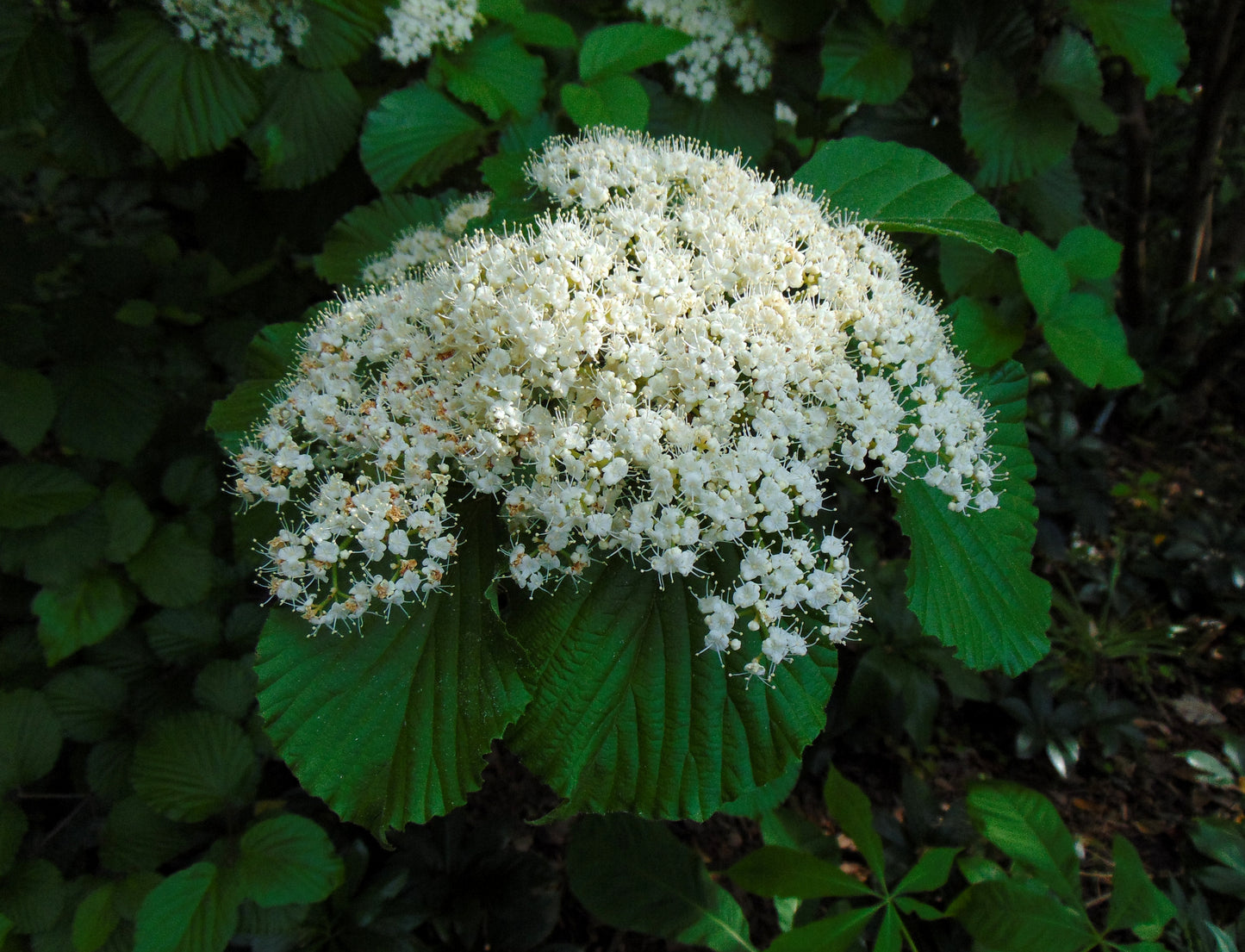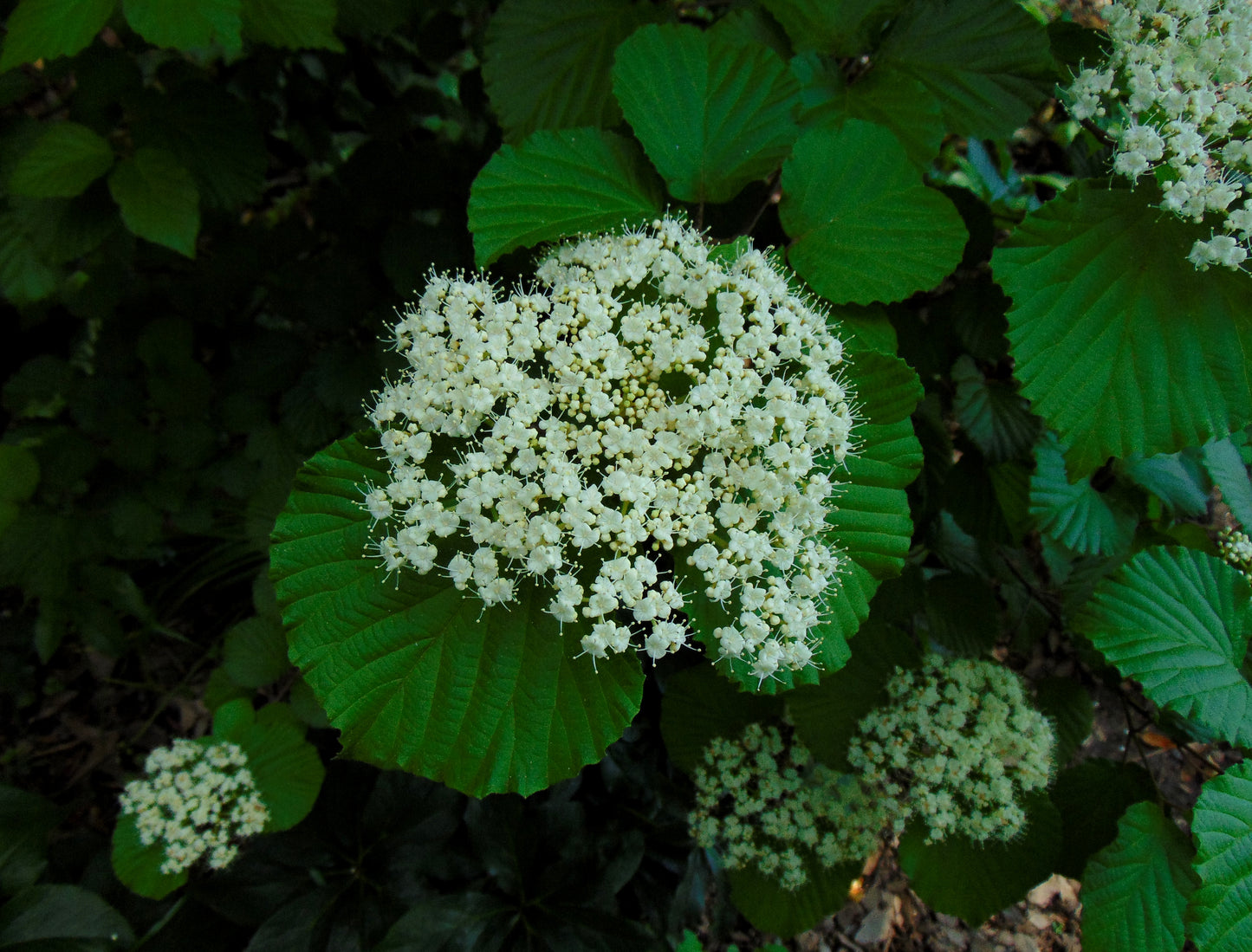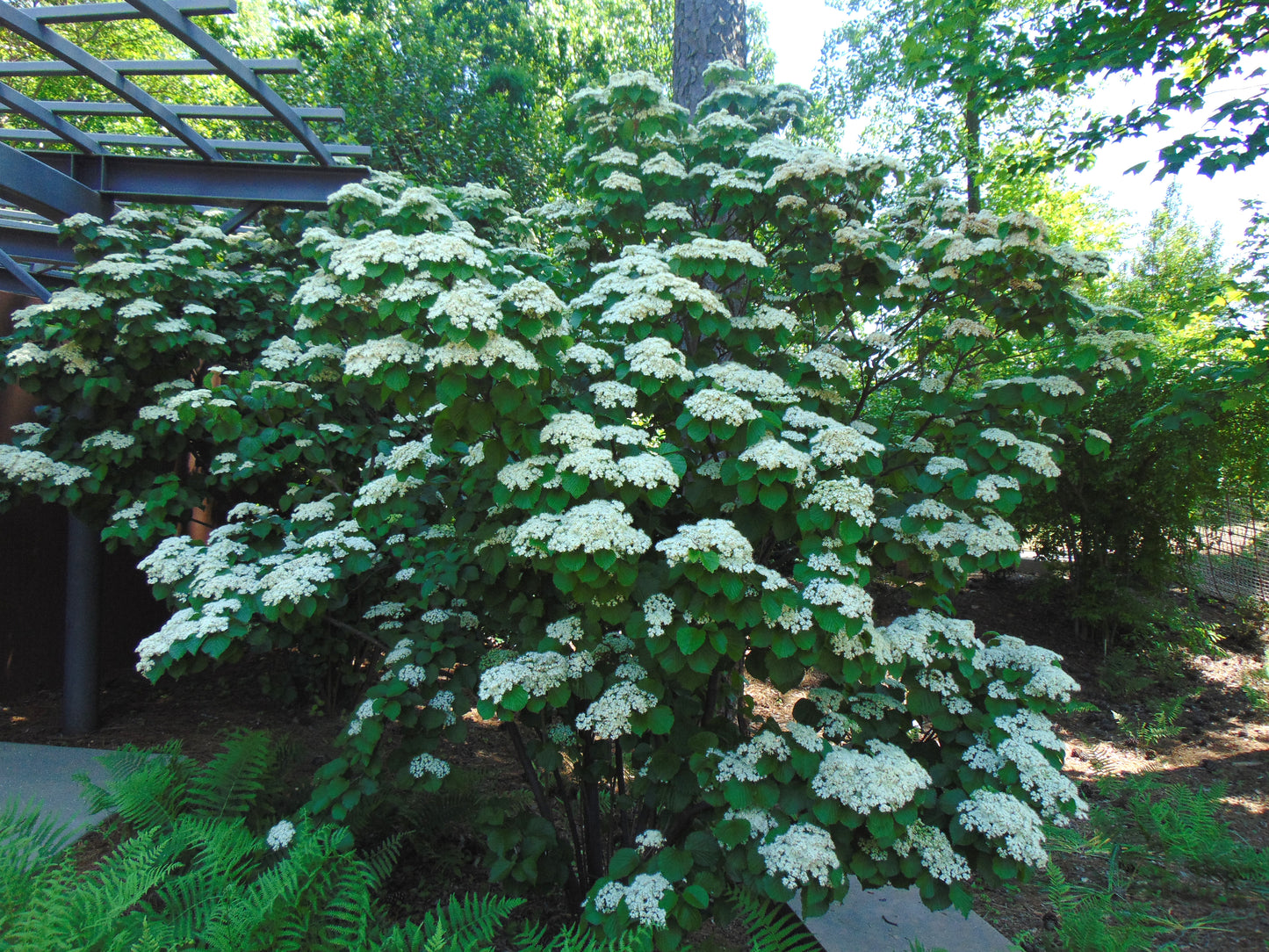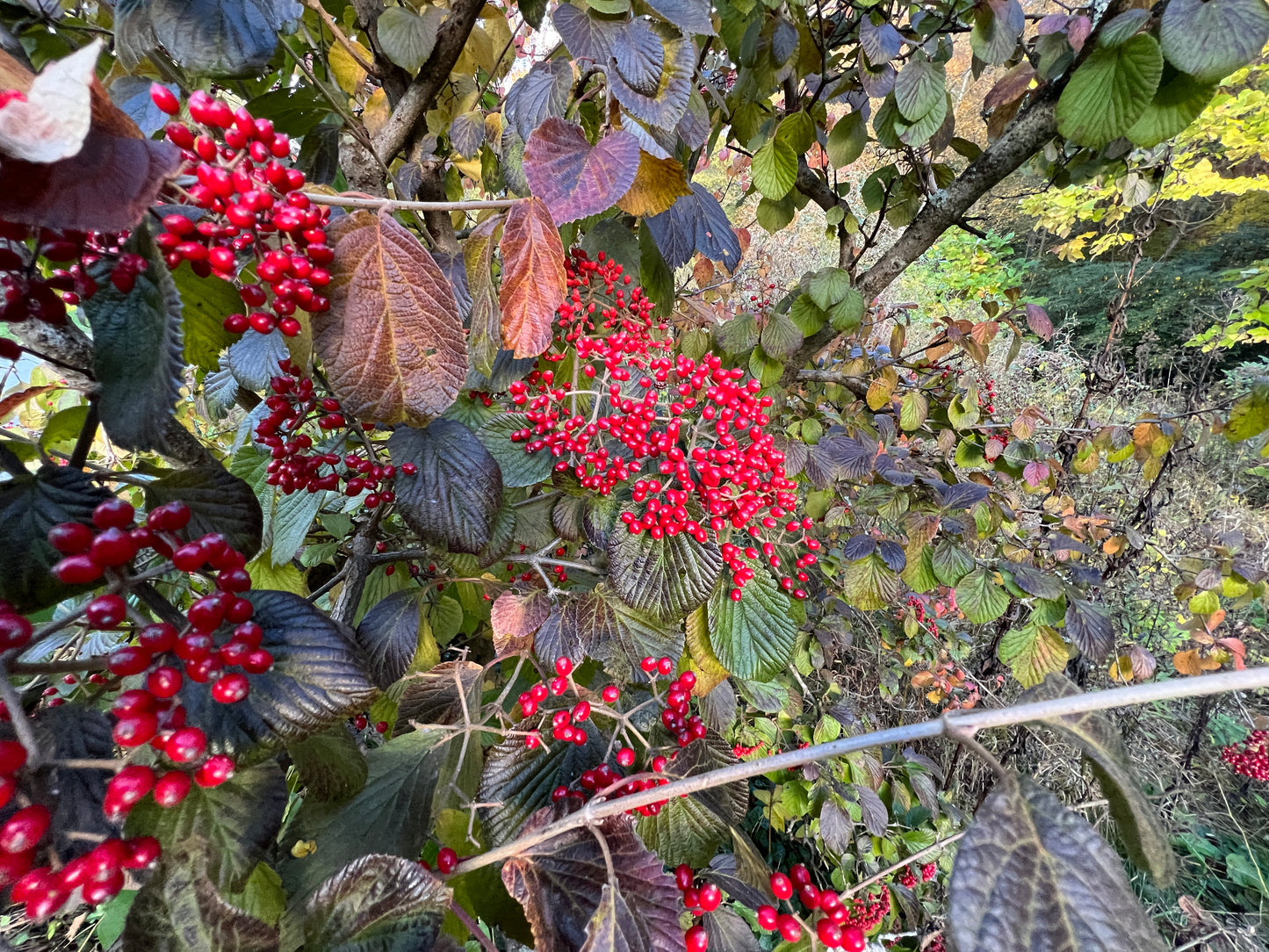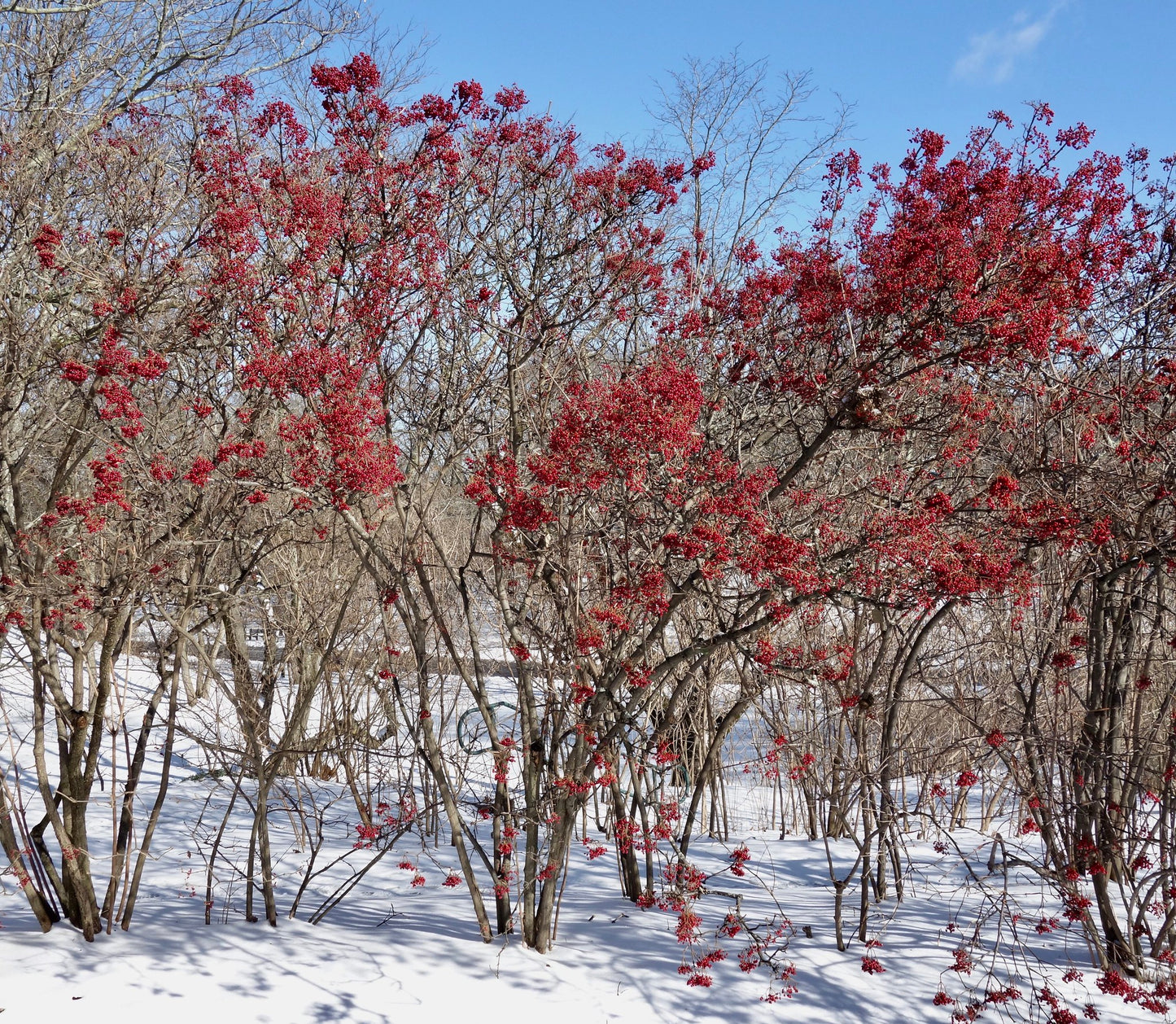Floridaseeds
Linden Viburnum 10 Seeds Viburnum dilatatum USA Company
Linden Viburnum 10 Seeds Viburnum dilatatum USA Company
Couldn't load pickup availability
Viburnum dilatatum, commonly known as Linden Viburnum or Linden Arrowwood, is a deciduous shrub native to East Asia, including China, Japan, and Korea. Here are some key features and details about this plant:
Description
Height and Spread: Typically grows to 8-10 feet tall and wide.
Leaves: Opposite, simple, ovate leaves with a serrated margin. They are dark green in color and turn a beautiful red or purple in the fall.
Flowers: Produces flat-topped clusters of small white flowers in late spring to early summer.
Fruit: Bright red, berry-like drupes that ripen in the fall and can persist into winter. These are attractive to birds.
Growing Conditions
Light: Prefers full sun to partial shade.
Soil: Thrives in well-drained, moist, fertile soils. Tolerates a range of soil types but prefers slightly acidic conditions.
Water: Requires regular watering, especially during dry periods. Established plants have some drought tolerance.
Hardiness Zones: USDA zones 5-8.
Uses
Landscape: Often used as a hedge, screen, or specimen plant due to its attractive foliage and fruit. Its fall color and winter berries add seasonal interest.
Wildlife: The fruits are a food source for birds, and the flowers attract pollinators like bees and butterflies.
Growing Instructions for the Linden Viburnum
The seeds have a period of dormancy. They can be planted outdoors in the fall or winter for spring germination or they can be cold stratified to simulate winter conditions and to break their dormancy at any time of the year. 1. Place the seeds in a plastic bag and seal it. Store the bag in a refrigerator for 10 weeks. 2. The seeds like moist, well-drained soil. Fill a pot with a mixture of half potting soil and half sand or vermiculite. 3. Sow the seeds on the soil and cover them with a thin layer of soil. 4. Water the container. 5. Put the pot in a warm, sunny area. 6. Water the pot regularly so that the soil is moist but not wet. 7. The seedlings can be transplanted when they are a few inches tall.
Materials
Materials
Shipping & Returns
Shipping & Returns
Dimensions
Dimensions
Care Instructions
Care Instructions
Share
